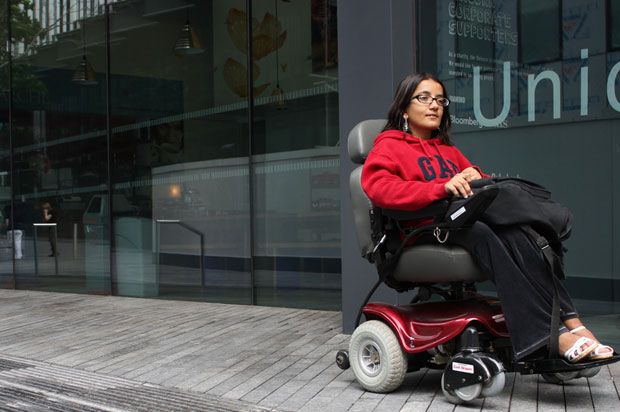Support for disabled students
If you’re disabled or have a learning difficulty, you can get help with your college or university course. We talk you through your rights as a disabled student – from extra funding to extra time in exams.

You're entitled to extra support if you're a disabled student.
Am I disabled?
It’s easy to see that a wheelchair user probably has a disability, but other impairments might not be so obvious – even to the person themselves.
The legal definition of disability is very broad and includes medical conditions, such as epilepsy, dyslexia, visual or hearing impairments, and mental health difficulties, such as depression.
You don’t have to accept the word ‘disability’ as a label, but it can be used as a way to get support. It’s important to remember that everyone can ask for help with their learning.
What support can I get with my studies?
Support can include many different things, for example:
- Specialist equipment, such as a voice-activated computer
- Sign-language interpreters
- Tape or digital recorder for lectures and notes
- Extra tutorial help
- Changing the height of desks
- Allowing you extra time to complete essays or exams
- Providing handouts on different colour paper, or in a larger font
- Transport to and from college
How do I organise disability support at college or uni?
- Tell your college or university that you have a disability (known as ‘disclosure’) before you start so they can put the support in place. It’s your choice when to tell them – but doing it early will give them more time to get things ready. Disclosure also gives you more protection. If the college or university can say they didn’t know you had a disability, you would not have a case for discrimination.
- Have a confidential discussion with the staff member responsible for disability – usually called the learning support advisor or disability coordinator. They should arrange for a needs assessment (a face-to-face meeting with a trained assessor who understands your disability). The assessor will send you a report summarising the extra help that you’ll receive.
How is disabled student support paid for?
If you’re in college, they usually pay for extra educational costs. Otherwise, you could try applying to a charitable trust. Read this guide to Funding Further Education for Disabled Students for more information.
If you’re at university, you can apply for Disabled Students’ Allowances (DSAs). DSAs are for extra costs you have on your course because of your disability. They’re divided into four categories: specialist equipment, non-medical helper, general expenditure and travel. You can get detailed information on DSAs from the Skill booklet Applying for Disabled Students’ Allowances.
Next Steps
- Chat about this subject on our Discussion Boards.
By
Updated on 29-Sep-2015
No featured article







